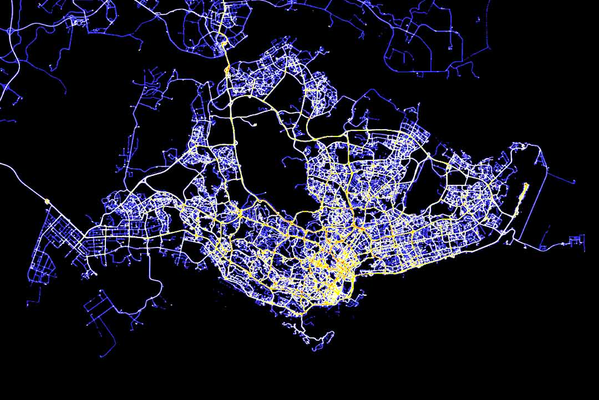June 2024

25 Jun 2024
Regulatory frameworks for AI technology are rapidly developing in the Asia-Pacific (APAC) region, with the market projected to grow significantly, reaching $356.13 billion by 2029. Many countries in the APAC region have introduced guidelines and laws to govern AI. These include legislative efforts to regulate AI use in the Philippines, Thailand, and South Korea. Additionally, many countries have adopted voluntary principles and guidelines to promote ethical AI use, such as Japan's Governance Guidelines for AI and Australia's AI Ethics Principles. Across the region, a shared commitment to responsible AI use is evident, whether through binding legislation or non-binding guidelines. Compliance with these regulations can be challenging, and businesses are encouraged to explore solutions like Holistic AI to navigate the rapidly evolving regulatory landscape.
May 2024

Singapore released the Model AI Governance Framework for Generative AI in May 2024, which offers a comprehensive approach to managing the challenges of generative AI and encourages a global dialogue on the topic. The framework covers nine dimensions related to AI governance, including accountability, data, trusted development and deployment, incident reporting, testing and assurance, security, content provenance, safety and alignment R&D, and AI for public good. The framework stresses the importance of collaboration between policymakers, industry stakeholders, researchers, and like-minded jurisdictions. It calls for accountability in AI development and usage, responsible data governance, and democratization of AI access.
March 2024

Singapore aims to boost its AI capabilities and become a global leader in AI advancements, with a focus on three main areas: Activity Drivers, People and Communities, and Infrastructure and Environment. The government will allocate SG$1 billion (about US$743 million) over the next five years to foster AI growth, attract top talent, and strengthen AI infrastructure and governance frameworks. The strategy includes initiatives to support industry, government, and research, as well as AI talent acquisition and upskilling, and the creation of physical space for AI activities. Singapore also aims to establish a trusted environment for AI through the institutionalization of governance and security frameworks.
February 2024

The Association of Southeast Asian Nations (ASEAN) has released a guide on AI governance and ethics to empower organizations and governments in Southeast Asia to navigate the landscape of artificial intelligence responsibly. The guide outlines three fundamental objectives towards responsible AI development, including practical guidance on designing, developing, and deploying AI systems, promoting consistency and collaboration in AI governance efforts between member states, and empowering policymakers to shape regulatory frameworks that promote responsible AI practices. The guide provides seven guiding principles serving as foundational pillars for responsible AI governance, including transparency and explainability, fairness and equity, and privacy and data governance. It recommends the Establishment of an ASEAN Working Group on AI Governance, nurturing AI talent, promoting investment in AI startups, investing in AI research and development, promoting adoption of AI governance tools, and raising awareness among citizens. The guide emphasizes the need for collaborative efforts between governments, private sectors, and educational institutions to foster ethical AI development and adoption within the region.

09 Feb 2024
China's AI market is worth $23.196 billion USD in 2021 and is expected to triple to $61.855 billion by 2025. The government expects AI to create $154.638 billion USD in annual revenue by 2030. China has been introducing AI regulations since 2021, with three distinct regulatory measures enforced at the national, regional, and local levels. These regulations aim to regulate the proliferation of AI and its innovative use cases. They cover a wide scope, including deepfake technology, internet information service algorithmic recommendation management, and generative AI. The regulations seek to mitigate potential harms associated with AI, and they set a crucial precedent for other jurisdictions to follow.